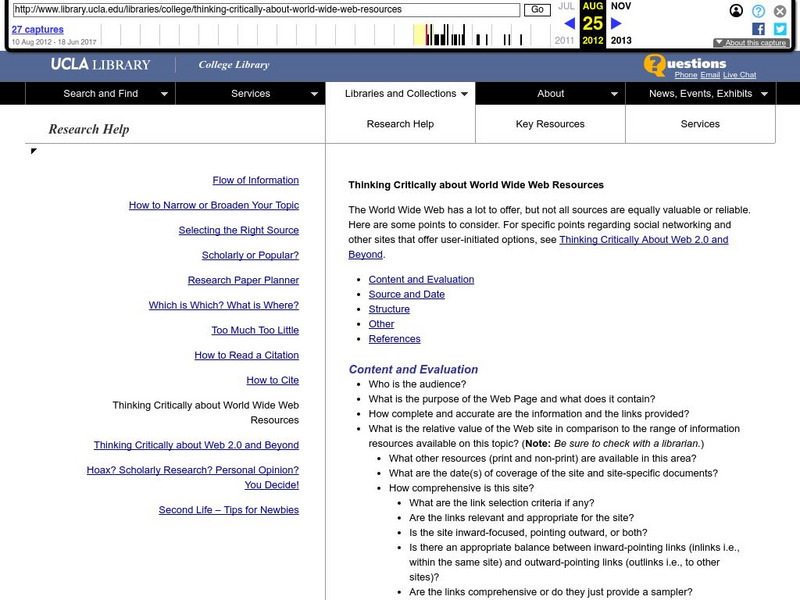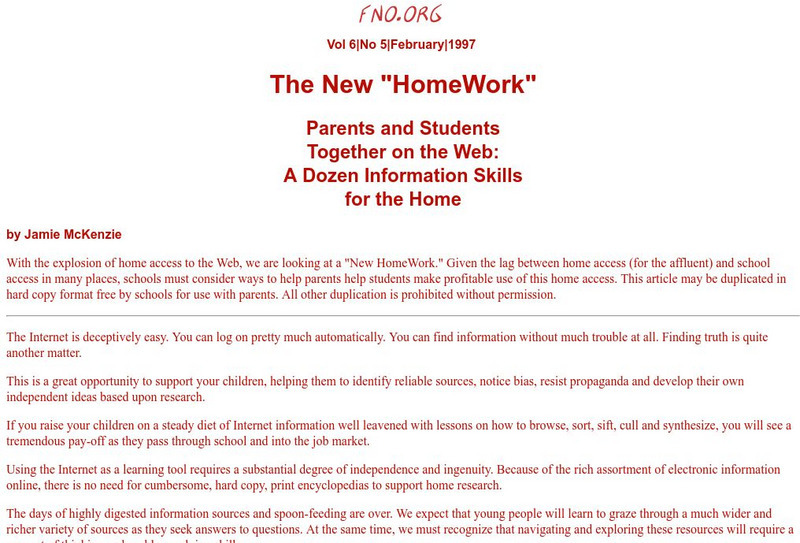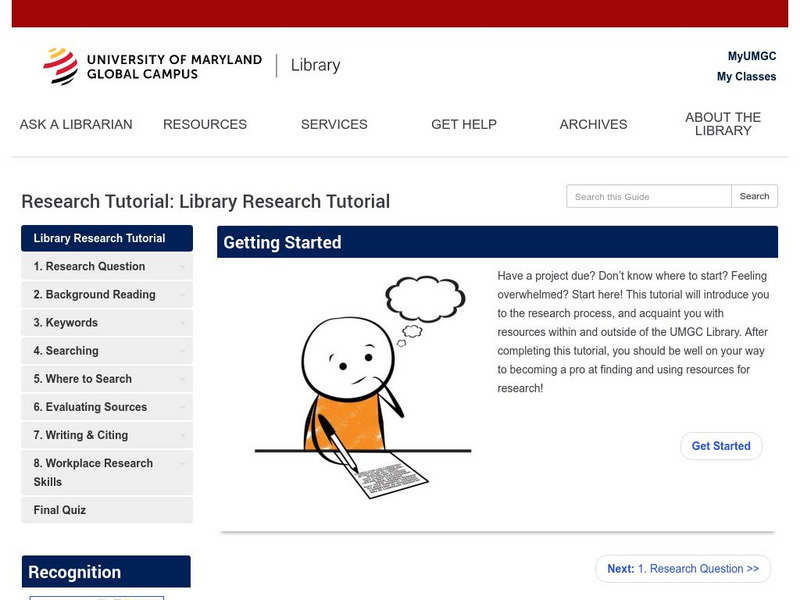Other
Classroom Tech: Evaluating Web Credibility
There is a vast amount of information on the internet, but how much of it is credible? This site presents tips on how to verify the information on a website and not be fooled by web "spoofs". Refer to the checklist for evaluating sources.
PBS
Pbs Learning Media: Common Sense Education: Identifying High Quality Sites
Learn how to "test before you trust" the sites and information found on the Web in this lesson plan and student handout from Common Sense Education. Assessing what you find on the Web is an essential skill for today's students. Use this...
The Write Place
Literacy Education Online
Literacy Education Online (or LEO) is a great place to start if you need help with your writing. The homepage is organized around kinds of problems or questions you might have concerning your writing. Find your problem, click on the...
University of California
Ucla College Library: Thinking Critically About World Wide Web Resources
This site teaches readers how to evaluate the content and quality of web resources, offering questions and checklists to consider.
Other
Ic You See: T Is for Thinking: Guide to Critical Thinking
This clearly presented tutorial can be used by individuals or could be presented to a class. Be sure to take the interactive quiz for some thought-provoking exercises.
FNO Press
The New "Home Work" Suggestions to Send Home
Information literacy can be practiced at home as well as at school. This article offers 12 suggestions for at home projects for parents and students to do together. Good for an open house handout.
ClassFlow
Class Flow: Evaluate Site
[Free Registration/Login Required] This flipchart provides students with strategies for researching on the internet and how to tell if a resource is reputable. CCSS.ELA-Literacy.CCRA.R.7
Other
Learn the Net: Internet Lesson Plans for Teachers
This resource provides lesson plans for teachers.
Other
Umuc: Secrets of My Research Success
This 35-minute interactive tutorial models the research process via the story of Quentin, a UMUC student. It takes him through the various research process steps: understand how to locate background information on his topic by showing...
University of Virginia
University of Virginia Career Services: Helpful Handouts
The University of Virginia Career Services Center offers numerous helpful handouts and career guides for the student preparing for a career. Handouts range from how to analyze your work preferences to how to write a resume. All handouts...






